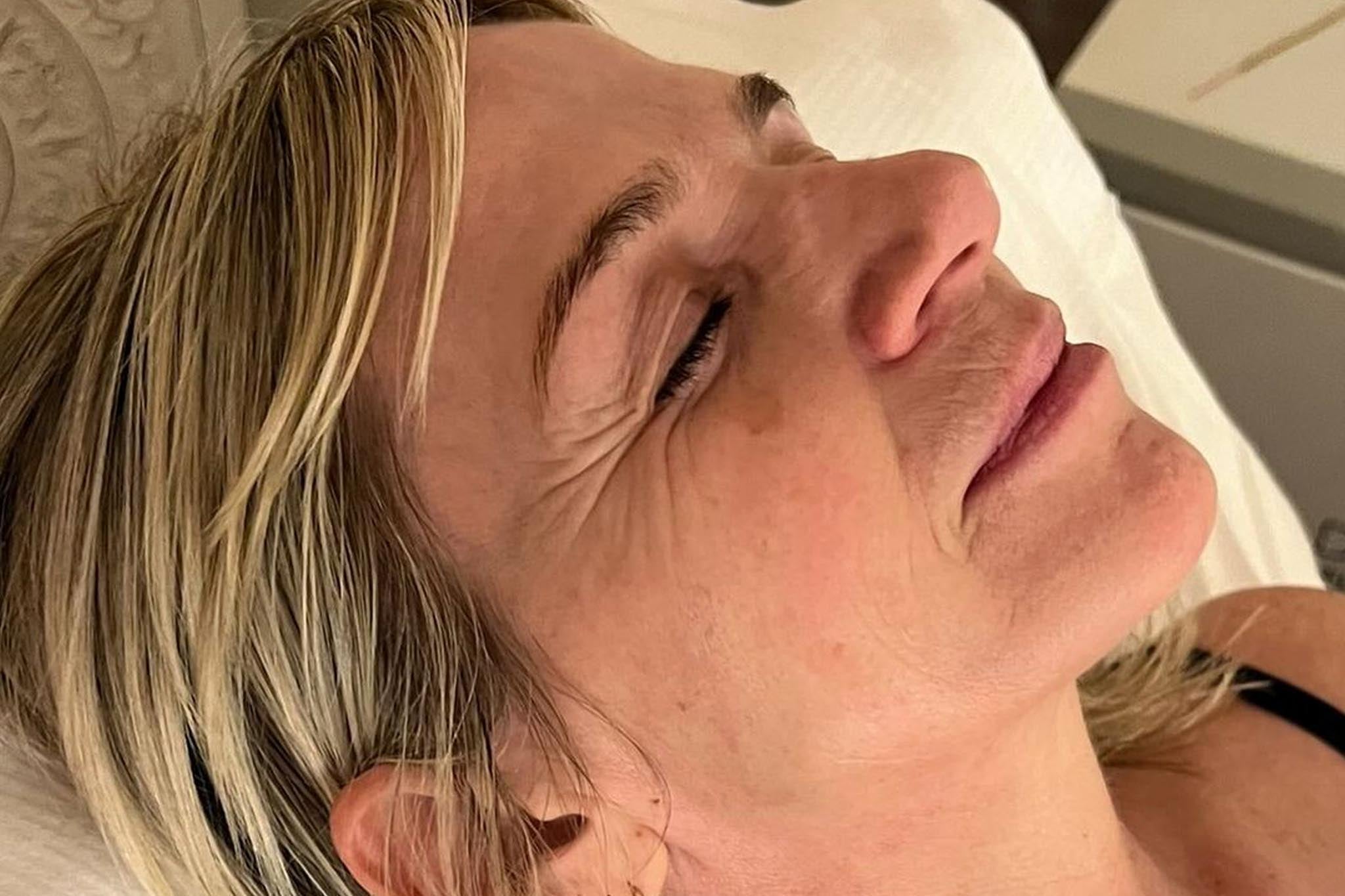What is TMJ disorder? Zoe Ball reveals painful condition
Zoe Ball announced she was stepping down from hosting Radio 2’s Breakfast show

Your support helps us to tell the story
From reproductive rights to climate change to Big Tech, The Independent is on the ground when the story is developing. Whether it's investigating the financials of Elon Musk's pro-Trump PAC or producing our latest documentary, 'The A Word', which shines a light on the American women fighting for reproductive rights, we know how important it is to parse out the facts from the messaging.
At such a critical moment in US history, we need reporters on the ground. Your donation allows us to keep sending journalists to speak to both sides of the story.
The Independent is trusted by Americans across the entire political spectrum. And unlike many other quality news outlets, we choose not to lock Americans out of our reporting and analysis with paywalls. We believe quality journalism should be available to everyone, paid for by those who can afford it.
Your support makes all the difference.Radio 2 DJ Zoe Ball, 54, has opened up about a painful jaw condition that she suffers with.
In an Instagram post to her 739K followers, the radio presenter shared pictures of herself before and after a treatment in a London-based clinic and said: “I have TMJ and wake most days with awful headaches from tension and jaw clenching.
“So grateful to Helen @thesculptresslondon for her magic. This is my face after I’ve seen her, check out my face before – yikes – picture 2.”
The 54-year-old announced earlier this month she was stepping down from hosting Radio 2’s Breakfast show after six years, with Scott Mills set to take over the slot.
Ball shared a photo of her face tensed before receiving treatment and an after shot of it more relaxed, saying she was “so grateful” to the clinic which has helped her.
What is TMJ disorder?
“TMJ stands for the temporomandibular joint, which is the hinge that connects your jaw to your skull,” explains Dr Rizwan Mahmood, dentist and co-founder of Rüh Dental. “This joint enables essential movements like speaking, chewing, and yawning and is vital for daily functions, and issues with it can cause significant discomfort.”
People often mistakenly use TMJ to refer to the condition, but TMD is the more accurate term.
“TMJ refers to the joint itself, whereas TMD (temporomandibular disorder) describes the various conditions that can affect the joint and the surrounding muscles,” clarifies Mahmood.
And there are three main types of temporomandibular disorders.

“The main types are joint disorders (like disc problems in the joint), muscle disorders (affecting the chewing muscles) and headaches linked to TMD,” pinpointed Anni Seaborne, head of general dentistry at Bupa Dental Care.
What are the symptoms of TMJ disorder?

“Symptoms can include pain in the jaw, ear, neck, or shoulders and a restricted jaw movement or a locked jaw,” says Seaborne. “People also experience clicking, popping, or grating sounds when moving the jaw, headaches and feeling like their bite is misaligned.
“Symptoms often improve on their own but may worsen with stress, chewing, or grinding.”
Can it lead to any complications?
“If left untreated, TMD can lead to chronic pain, limited jaw mobility, and even long-term damage to the jaw joint,” warns Mahmood. “It can also cause migraines, ear problems, and difficulty speaking or eating.”
Can it be treated?
“Generally speaking, it can subside by itself, with recommendations for managing symptoms at home,” says Nyree Whitley, chief clinical officer at my dentist. “This may include eating softer foods which are easier to chew, over-the-counter pain medication such as paracetamol or ibuprofen to manage any pain, reducing habits such as nail biting, jaw clenching or teeth grinding and applying a hot or cold compress to the face.
“In some instances, your dentist will also recommend using a mouth guard either at night or in the daytime to keep your teeth well protected.”

However, if symptoms persist for more than three months, surgery may be considered.
“In these cases, a specialist may recommend other treatments including jaw manipulation under anaesthesia, muscle relaxant injections or surgery for severe cases (e.g., repairing or replacing the joint),” says Seaborne.